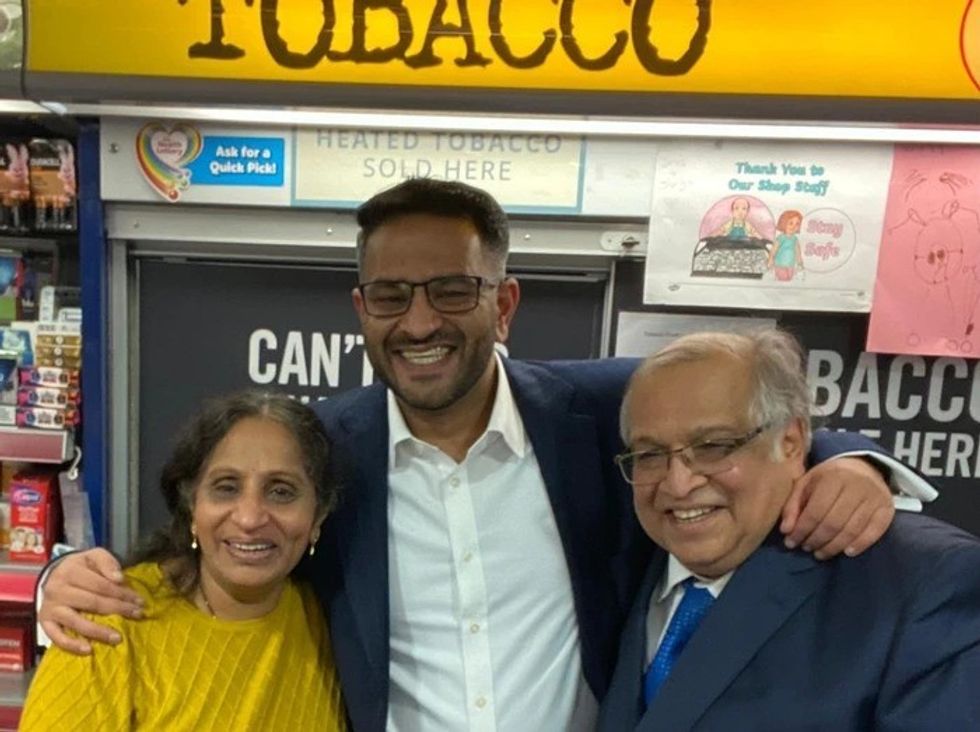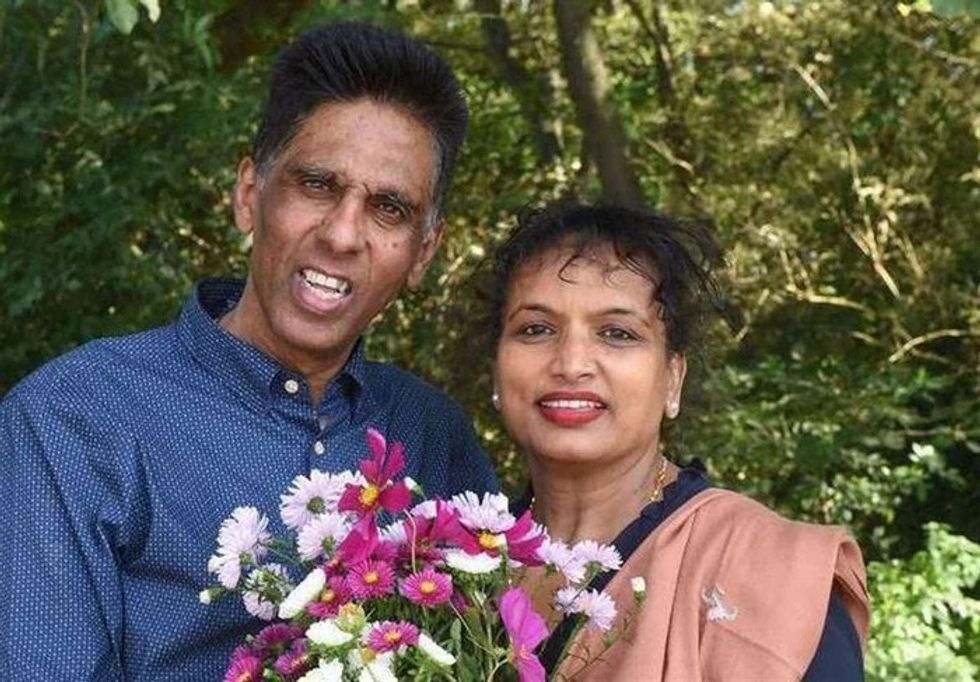HOME secretary Priti Patel said today (1) the UK government will end free movement and introduce an Australian-style points-based immigration system once the country leaves the European Union.
Addressing the Conservative Party's annual conference in Manchester, Patel said her Brexit mission is "to end the free movement of people once and for all. Instead we will introduce an Australian-style points-based immigration system."
"One that works in the best interests of Britain. One that attracts and welcomes the brightest and the best. One that supports brilliant scientists, the finest academics and leading people in their fields. And one that is under the control of the British Government," she said.
The 47-year-old British Gujarati Cabinet minister, who described herself as the "daughter of immigrants" said she needed no “lectures from the North London metropolitan liberal elite”, alluding to opposition Labour leader Jeremy Corbyn MP who represents Islington in parliament.
Among other measures, the newly appointed home secretary, under remit includes security, showed her support for the police and “those who put their lives on the line for our national security”.
Delegates at the party’s annual gathering heard Patel say: “I have created a fund to give police chiefs the ability to train and equip police officers with tasers.
“I am equipping police officers with the kit and tools they need to protect themselves and others from harm.”
She also announced a £20 million package to tackle county lines drugs gangs as well as a £25m safer streets fund for new security measures for Britain's worst crime spots," she said.
Earlier Patel launched a group to ensure immigrants affected by the Windrush scandal are able to access the compensation scheme set up by the Home Office.
"The Windrush generation were failed by successive governments and I want to ensure we reach all those affected through the Windrush Compensation Scheme through direct community engagement,” the home secretary said, as she set up a Windrush Advisory Group last week.
Among those caught up in the scandal are nationals of former British colonies, a majority from the Caribbean but many also from India, who arrived before 1973 when the rights of such Commonwealth citizens to live and work in Britain were substantially curtailed.
It had emerged that thousands belonging to that generation of migrants were wrongly denied their British citizenship rights, leading to the creation of an emergency task force as well as a compensation scheme.
According to the latest Home Office statistics, as many as 737 Indians have come forward since the Windrush scandal emerged last year to confirm their British citizenship and the figure is expected to keep mounting.
A majority of them had arrived in the UK before 1973, when the immigration rules had changed, while the others either arrived later or were a family member of the so-called Windrush generation.
"I am enlisting trusted faith and community leaders from across the UK to raise awareness of the support available and to work with us directly on delivering this scheme. By working hand in hand with our community partners the government will be able to provide the essential support to members of the Windrush generation and address the suffering experienced by many people across a range of communities,” Patel said.




 Davindra and Seema Misra, and Vijay and Gita Parekh
Davindra and Seema Misra, and Vijay and Gita Parekh Varchas Patel with his father Vipin and mother Jayshriben
Varchas Patel with his father Vipin and mother Jayshriben Hasmukh Shingadia and his wife Chandrika were all victims of the Horizon scandal
Hasmukh Shingadia and his wife Chandrika were all victims of the Horizon scandal














Man pleads not guilty to murder of BBC presenter's family